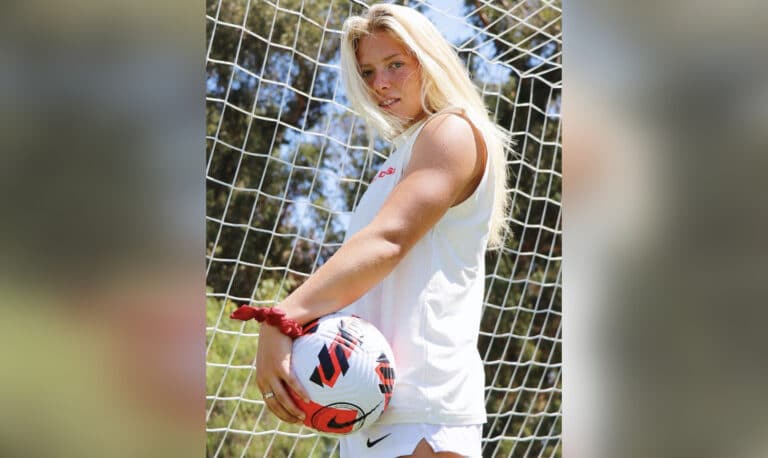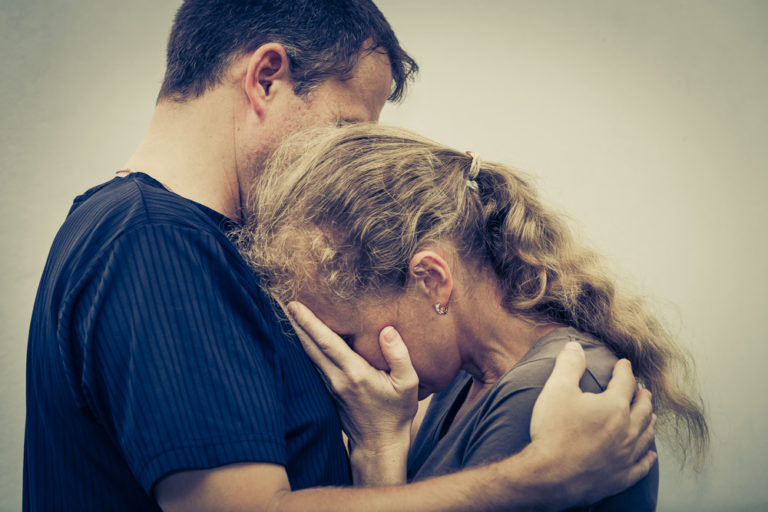I’m going to start by saying I write this with trepidation. Katie Meyer, soccer superstar from Stanford, died by suicide last week. I offer my deepest and most sincere condolences to Katie’s family, friends, teammates, and classmates. My heart breaks when I think about her desperation.
I do know that as an educator, a parent of young athletes, and a woman who played collegiate soccer, we can do better. When I played Division III soccer over 20 years ago, the topic of mental health was never brought up in my undergrad. Never in class, on the field, in the locker room, on the bus—anywhere.
Sure, society has begun to talk about mental health—finally. But pressure on young people is so much higher now.
And for athletes, this pressure begins as young as age six. Children are being molded to be ruthless competitors starting that young. Not only is this developmentally inappropriate, but it’s also unhealthy.
As parents, we should be concerned.
One of my own children suffered from performance anxiety at the age of eight. Between faking injuries and sicknesses and their own teammates treating them like garbage, the red flag went up for me as a parent. I have also seen countless parents yelling at their children, refs, and the other team during games when small children played on the field. This is ingraining an unhealthy stress level starting from a very young age on these tiny athletes. It can signal to them that showing any sign of vulnerability is seen as a weakness—when in reality, as they grow, those feelings could be trying to save their lives.
RELATED: Ten Warning Signs of Teen Suicide All Parents Must Know
After losing a U8 tournament (after parents on both sidelines lost complete control), one child was crying. “Oh, they’re just so competitive,” the parent said to me. But what probably was going through that child’s brain was too much pressure, and it’s unacceptable. At that age after winning or losing, kids should only be concerned with whether they’re going to eat at Panera or Applebee’s.
Thankfully, we pulled our child out of that league. Now, they play on a far less competitive team, one that lost each and every game of the season (by a lot), but came off of the field grinning.
The payoff was worth it.
Competition is healthy. Wanting to be one of the greatest is even fine for individuals who are wired that way. But there must—there absolutely must—be talk of mental health on the regular.
RELATED: An Open Letter to the Family and Friends Who Just Lost a Loved One to Suicide
How much pressure can one person handle? Students are striving to be the best, get stellar grades, and more. Constantly reaching toward all that perfection is a prickly path that can prove to be deadly.
Institutions must not only offer mental health support but it must be part of an ongoing conversation. Student athletes must be given tools to navigate pressure and mental health struggles. Institutions must normalize that dealing with mental health issues is normal altogether. Because it is. And we can’t dodge it anymore.
Lives are at stake.
Since Katie Meyer’s death, Stanford University has addressed the mental health crisis on campus. According to the Los Angeles Times, university spokesperson Dee Mostofi wrote in an email: “Mental health remains not only an ongoing challenge but our most urgent priority.”
I pray it remains urgent.
No one is to blame, but everyone can do better. Parents and coaches need to openly talk to their athletes about mental health beginning at a very young age.
If we want to save lives, we have to stop putting so much pressure on these kids and start having tough conversations. It’s time.
If you or someone you know is exhibiting warning signs of suicide, seek help by calling the National Suicide Prevention Lifeline at (800) 273-TALK (8255).

If you liked this, you'll love our book, SO GOD MADE A MOTHER available now!
Order NowCheck out our new Keepsake Companion Journal that pairs with our So God Made a Mother book!
Order Now


















